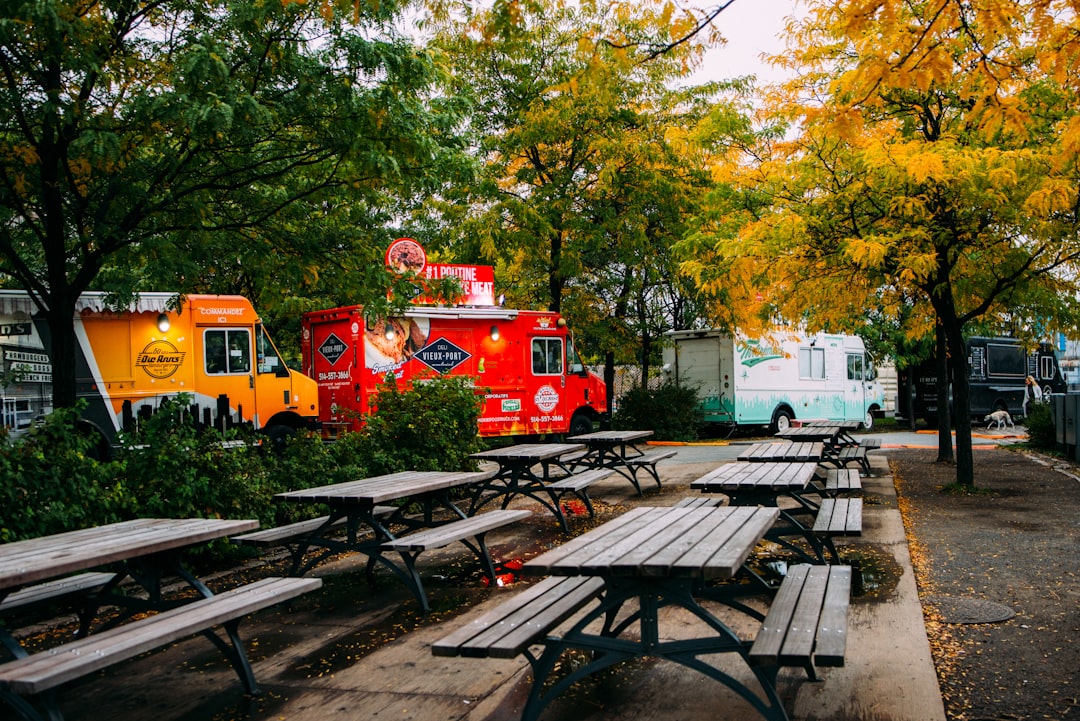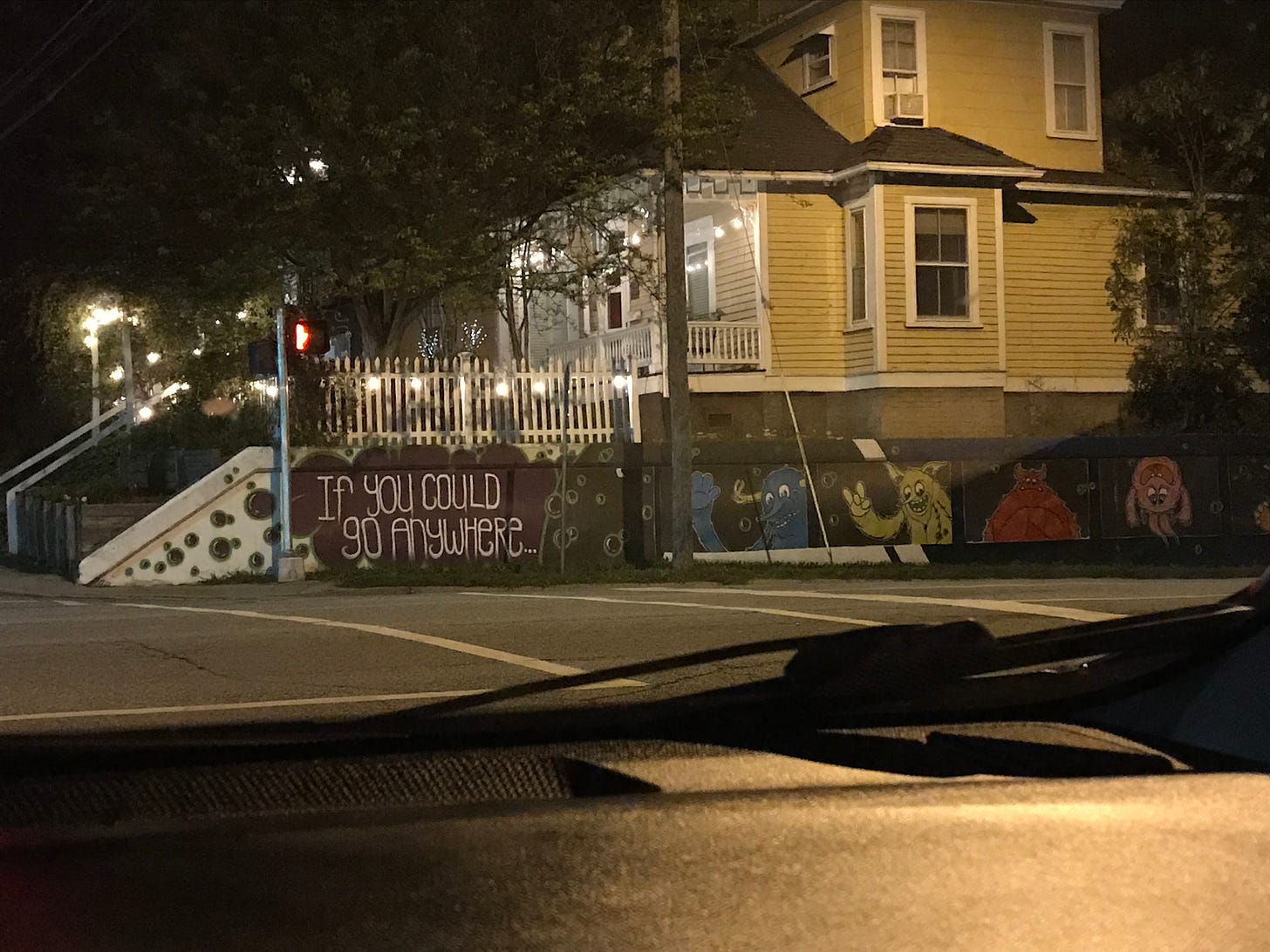
You may not need what I have to offer now, but it’s going to be here for you and the people and places you care about, later, just in time.
—
This is The Black Urbanist Weekly, an email newsletter that highlights the Black Queer Feminist Urbanist thoughts and commentary of me, Kristen Jeffers, internationally known urban planner, designer, analyst, keynote speaker, media maven, and fiber artist. This week I talk more about what May will look like if you choose to join me in the Black Queer Feminist Urbanist intensive. Additionally, this newsletter is brought to you this week by Elsewhere and CultureHouse’s new job openings, Greater Greater Washington’s Spring Gala, and my Patreon supporters, who will have a first-row seat to next month’s intensive. Scroll down to the Before You Go section to learn more.
—-
From the looks of things, my work and my life are going against the grain of the world, especially the planning and placemaking world I always saw as my primary target audience.
While I urge caution and insist that we can still practice good pandemic hygiene and still convene together, I’m often met with pressure to convene inside, masks off, looking at some of the same old PowerPoints and eating the same old stiff hotel chicken and slightly dried scrambled eggs.
Never mind the times we convened in park shelters, festival tents, rooftops, and community plazas stuffed our bellies and bags from food and other vendor trucks and danced the times away to some great bands and DJ music, videos playing on big community screens, peeling off to more private cabanas, gazebos or blankets to talk shop or maybe even fall in love or reconnect after years apart.
Meanwhile, I go to restaurants that sneer at me wanting to be seated outside if that’s even available. The streateries and even the yarnstreet are all gone now, because it’s supposed to be safe to go back outside and somehow those open streets were just a fluke.
Many of us stayed up all night in June of 2020, to make sure others knew we were human and we didn’t deserve to die the way we often die: by police, by novel diseases, by childbirth, by strokes and heart attacks and cancers brought on by the stress of proving above and beyond and over and over again, that we are in fact, humans deserving of dignity, despite our voice tone and skin tone. Especially those of us who descended from those who built countries and companies and movements that so often are co-opted.
Yet, we are facing a new wave of co-option and selective memories of what’s needed. Dare I say that many are threatened with their loss of power and prestige to do things differently?
None of this is new and even this notion of being outside of the mainstream isn’t new to me.
Toni Morrison’s admonishment to the folks at that Ohio Arts Council gathering in 1981 that “If there’s a book that you want to read, but it hasn’t been written yet, then you must write it.” rings true today just over forty years later.
That’s what this is.
Whether it’s my teenhood bedroom during the Great Recession and seemingly no jobs and not enough creativity for my creative soul sitting in my Master of Public Affairs program or now in my lovingly partnered and shared bedroom that’s become my pandemic oasis of social distancing, I’m writing what I need.
Then I needed to know that you knew that I was a Black urbanist, wanting bike lanes and sidewalks and buses and centralized services and entertainment opportunities and affordable humane housing for all. Then I needed something to get my back out that bedroom and get me on the stages I’ve been blessed to grace and to the places I’ve lived and traveled since then.
Now I need you to know that the Black queer feminist urbanists of the world along with our other marginalized siblings, many who are just average people trying to survive: bus-dependent;masked behind a service counter or taking your temperature or just because they know it works; walker and wheelchair users; immunocompromised. Still human and still ready to meet you at the park shelter with a picnic basket with all the stories and wisdom and best practices to share.
It’s why I’m releasing my series of worksheets in May, available to Patreons, and my fellow Black Queer Feminist Urbanists in our lounge.
It’s why I’m doing more live office hours. While I won’t be able to come on live today, I’ll be back next week and I’m editing a video of my office hour from last week describing these new resources. In the meantime, you can take this quizto see where you fall.
I needed these worksheets to make sense of the world, especially this new world. I think you might need them too. Maybe not now or May, but later on down the line, at the right time for you.
When it’s your time to write that book or make that place or make a way out of no way for you or people you care about.
Before You Go
Elsewhere, the extraordinary living museum and artist residency in Greensboro, NC, is now hiring two key managerial/curatorial positions that will lead organizational programs and communications. Both roles are highly collaborative, shaping their respective work through collective visioning and goal setting, project management and coordination, and on the ground facilitation.
The Program Manager/Curator will lead curation and operation of the museum experience, the international artist residency, and alternative learning programs. The Communications Manager/Curator will lead the development of social media, newsletters, press releases, print objects, and museum interpretive materials.
Both positions are 30-hour per week roles starting at $18-20/hour. Benefits include 160 hours of paid time off, $1,000 of healthcare/self-care reimbursements and $1,000 of professional development annually, daily participation in Elsewhere’s vegetarian food co-op, and FMLA leave.
Applications are due May 1st at 11:59PM EST. Cover letters can be a barrier to entry. Elsewhere is asking applicants to complete a questionnaire in lieu of a cover letter and submit work samples of any kind along with their resume. Additionally, Elsewhere will host two town halls to introduce current staff, share information, and answer questions. The first town hall is for everyone on 4/13, 6:30-7:30PM EST, (register here) and the second town hall on 4/20, 6:30-7:30PM EST, will be exclusively for BIPOC participants (register here).
Elsewhere is artist-run space, but has a radically expansive definition of artist that can include practitioners from many fields and backgrounds (educators, organizers, etc.). Elsewhere seeks staff who are visionary, curious, self-reflective, assertive, proactive, solution-oriented, and mission-driven.
Elsewhere shares a radically expansive understanding of creative practice and identity. We strive for a diverse representation of voices, life experiences, views, and interests to reflect the collaborative community we have and wish to serve. To decolonize systemic structures of institutional oppression, we encourage queer creatives of color, as well as all other marginalized groups, to apply. Elsewhere is a ‘second chance’ employer and believes that those who are judicially challenged have a place in our community. If there are accessibility needs or questions, please contact museum@goelsewhere.org.
More information and applications: https://www.elsewheremuseum.org/apply
#
CultureHouse, a queer-led urban design nonprofit based in Somerville, MA (Boston area) hiring for two positions to join their creative and passionate team. CultureHouse works with communities to transform unused spaces into vibrant public places. Their projects increase access to social infrastructure (the places we build and form connections)—creating cities that are more resilient, equitable, sustainable, and vibrant. Their work is deeply rooted in participatory community design and the core belief that everyone has a right to high-quality public space.
Sound like something you want to be a part of? More information on both positions is available at culturehouse.cc/join-us. Applications are reviewed on a rolling basis, but please submit by EOD on April 30th. Reach out to aaron@culturehouse.cc with any questions. Read on for position descriptions.
Design position: Are you passionate about public space? Do you enjoy having a job that is impossible to explain to friends? We are searching for a full-time Designer to design and build creative tactical urbanism projects. In this role you will scope, design, construct, and see projects through completion.
Operations position: Are you a well-organized person with a passion for helping organizations run smoothly? Well, you just might be right for the CultureHouse Operations position! This role will work to make CultureHouse a more efficient organization by developing and maintaining operational systems.
#
It’s not too late to get tickets to the Greater Greater Washington Spring Gala, which will be on April 28 from 6-9 pm at Mess Hall, a wonderful indoor/outdoor event venue in DC. Head here to purchase and learn more. COVID-19 Vaccination is required.
#
If you just want to support me for any reason, but don’t need anything in return, you can become a monthly Patreon supporter, or you can donate to my capital campaign, or Venmo or Cash. App me. You can join the advertisers above, learn more and secure one starting at $75/week.
#
Once again, I’ll resume my office hour next week with a livestream. Details to come in next week’s newsletter.
Until next time,
Kristen









